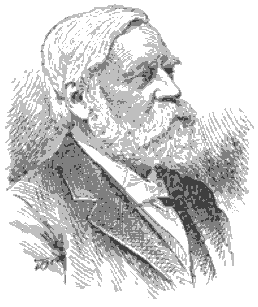
Soap is a salt of a fatty acid used in a variety of cleansing and lubricating products. In a domestic setting, soaps are surfactants usually used for washing, bathing, and other types of housekeeping. In industrial settings, soaps are used as thickeners, components of some lubricants, and precursors to catalysts.

A detergent is a surfactant or a mixture of surfactants with cleansing properties when in dilute solutions. There are a large variety of detergents, a common family being the alkylbenzene sulfonates, which are soap-like compounds that are more soluble in hard water, because the polar sulfonate is less likely than the polar carboxylate to bind to calcium and other ions found in hard water.

Colgate-Palmolive Company is an American multinational consumer products company headquartered on Park Avenue in Midtown Manhattan, New York City. The company specializes in the production, distribution, and provision of household, health care, personal care, and veterinary products.

The Perkin Medal is an award given annually by the Society of Chemical Industry to a scientist residing in America for an "innovation in applied chemistry resulting in outstanding commercial development." It is considered the highest honor given in the US chemical industry.

Ajax is an American brand of household cleaning products and detergents made by Colgate-Palmolive and Awesome Products Inc.

Dishwashing liquid, or dishwashing soap, dish detergent, and dish soap is a detergent assisting in dishwashing. Dishwashing detergents for dishwashers come in various forms like cartridges, gels, liquids, pacs, powder, and tablets. It is usually a highly-foamy mixture of surfactants with low skin irritation that consumers primarily use for washing glasses, plates, cutleries, and cooking utensils. In addition to its primary use, dishwashing liquid also has various informal applications, like creating bubbles, clothes washing, and cleaning birds from oil spills.

Shower gel is a specialized liquid product used for cleaning the body during showers. Not to be confused with liquid soaps, shower gels, in fact, do not contain saponified oil. Instead, it uses synthetic detergents derived from either petroleum or plant sources.

The National Historic Chemical Landmarks program was launched by the American Chemical Society in 1992 to recognize significant achievements in the history of chemistry and related professions. The program celebrates the centrality of chemistry. The designation of such generative achievements in the history of chemistry demonstrates how chemists have benefited society by fulfilling the ACS vision: Improving people's lives through the transforming power of chemistry. The program occasionally designates International Historic Chemical Landmarks to commemorate "chemists and chemistry from around the world that have had a major impact in the United States".

Colgate is an American brand principally used for oral hygiene products such as toothpastes, toothbrushes, mouthwashes and dental floss. Manufactured by Colgate-Palmolive, Colgate's oral hygiene products were first sold by the company in 1873, sixteen years after the death of the founder, William Colgate. The company originally sold soap.
Oleochemistry is the study of vegetable oils and animal oils and fats, and oleochemicals derived from these fats and oils. The resulting product can be called oleochemicals (from Latin: oleum "olive oil"). The major product of this industry is soap, approximately 8.9×106 tons of which were produced in 1990. Other major oleochemicals include fatty acids, fatty acid methyl esters, fatty alcohols and fatty amines. Glycerol is a side product of all of these processes. Intermediate chemical substances produced from these basic oleochemical substances include alcohol ethoxylates, alcohol sulfates, alcohol ether sulfates, quaternary ammonium salts, monoacylglycerols (MAG), diacylglycerols (DAG), structured triacylglycerols (TAG), sugar esters, and other oleochemical products.

Samuel Colgate, son of William Colgate, was an American manufacturer and philanthropist, born in New York City. When William Colgate died in 1857, Samuel took over the business, reorganizing it as Colgate & Company. In 1872, Samuel introduced Cashmere Bouquet, the world’s first milled perfumed toilet soap. Then in 1873, Colgate introduced its first Colgate Toothpaste, an aromatic toothpaste sold in jars. In 1896, the company sold its first toothpaste in a collapsible tube, named Colgate Ribbon Dental Cream. Also in 1896, Colgate hired Martin Ittner and under his direction founded one of the first applied research labs. The manufactory he built in Jersey City developed into one of the largest establishments of its kind in the world and is now part of Colgate-Palmolive.
The Royal Netherlands Chemical Society is a learned society and professional association founded in 1903 to represent the interests of chemists and chemical engineers in the Netherlands. Currently the organisation has approximately 7,400 members.
Harry R. Allcock is Evan Pugh Professor of chemistry at Pennsylvania State University in the United States.
William Albert Noyes Jr., commonly known as W. Albert Noyes Jr., was an American chemist known for his contributions to photochemistry. During World War II, he was a leader in U.S. defense research efforts. He chaired the chemistry department at the University of Rochester, edited several important chemistry journals, and throughout his career was a prominent voice for international scientific cooperation. He was the son of the renowned chemist William A. Noyes; they became the first father-son pair to win the Priestley Medal, the highest honor given by the American Chemical Society.
Milton C. Whitaker (1870-1963) was a noted 20th-century chemist. His areas of speciality were chemical engineering and industrial chemistry.
David R. Bryant is an internationally acclaimed organic chemist, having worked his entire thirty-nine-year 'early career' at Union Carbide. He is inventor on some ninety patents, and a recipient of the Perkin Medal. He currently is a member of Renewable Algal Energy (RAE) LLC, and is working to commercialize an algae-to-oil process utilizing RAE's patent pending technology.
John H. Sinfelt was an American chemical engineer whose research on catalytic reforming was responsible for the introduction of unleaded gasoline.
Palmolive is an American multinational brand of a line of products produced by Colgate-Palmolive. The Palmolive brand grew from one product, Palmolive bar soap. Made of coconut, palm and olive oils, Palmolive bar soap was introduced in 1898. Originally, the bar soap floated like Procter & Gamble's Ivory bar soap. By the turn of the 20th century, Palmolive bar soap was the world's best-selling soap.

Alkylbenzene sulfonates are a class of anionic surfactants, consisting of a hydrophilic sulfonate head-group and a hydrophobic alkylbenzene tail-group. Along with sodium laureth sulfate, they are one of the oldest and most widely used synthetic detergents and may be found in numerous personal-care products and household-care products . They were introduced in the 1930s in the form of branched alkylbenzene sulfonates (BAS). However following environmental concerns these were replaced with linear alkylbenzene sulfonates (LAS) during the 1960s. Since then production has increased significantly from about one million tons in 1980, to around 3.5 million tons in 2016, making them most produced anionic surfactant after soaps.











